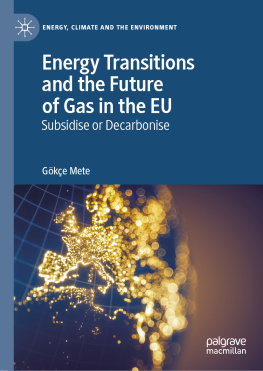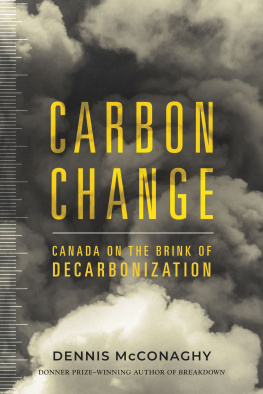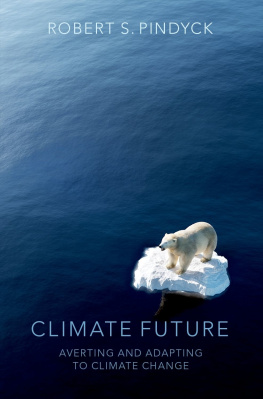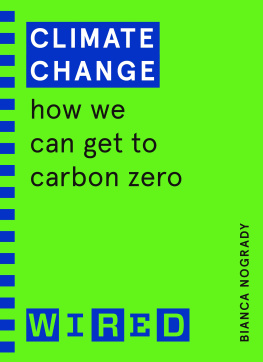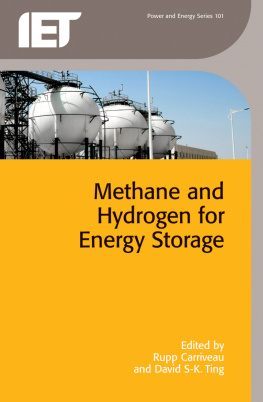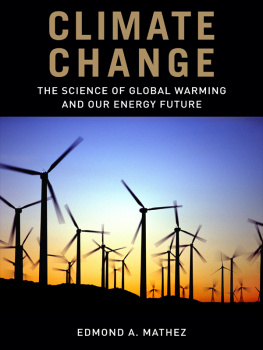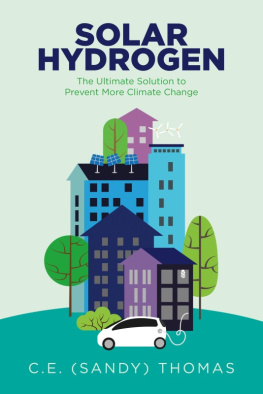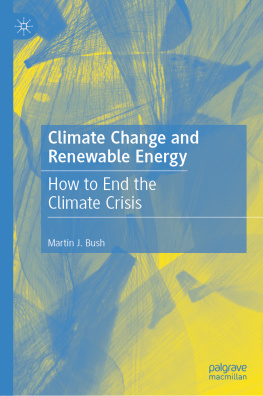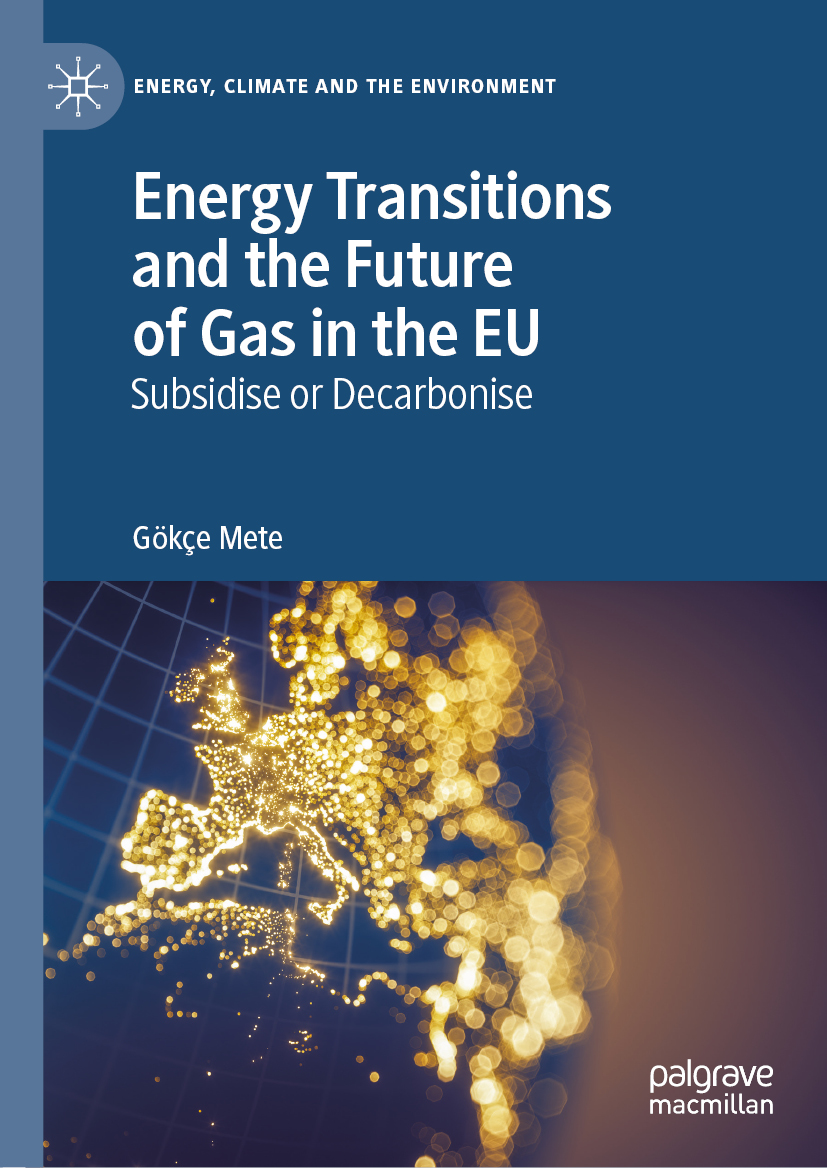Energy, Climate and the Environment
Series Editors
David Elliott
The Open University, Milton Keynes, UK
Geoffrey Wood
School of Law, University of Stirling, Stirling, UK
The aim of this series is to provide texts which lay out the technical, environmental and political issues relating to proposed policies for responding to climate change. The focus is not primarily on the science of climate change, or on the technological detail, although there will be accounts of this, to aid assessment of the viability of various options. However, the main focus is the policy conflicts over which strategy to pursue. The series adopts a critical approach and attempts to identify flaws in emerging policies, propositions and assertions. In particular, it seeks to illuminate counter-intuitive assessments, conclusions and new perspectives. The intention is not simply to map the debates, but to explore their structure, their underlying assumptions and their limitations. The books in this series are incisive and authoritative sources of critical analysis and commentary, clearly indicating the divergent views that have emerged whilst also identifying the shortcomings of such views. The series does not simply provide an overview, but also offers policy prescriptions.
More information about this series at http://www.palgrave.com/gp/series/14966
Gke Mete
Energy Transitions and the Future of Gas in the EU
Subsidise or Decarbonise
Gke Mete
International Energy Charter, Brussels, Belgium
Energy, Climate and the Environment
ISBN 978-3-030-32613-5 e-ISBN 978-3-030-32614-2
https://doi.org/10.1007/978-3-030-32614-2
The Editor(s) (if applicable) and The Author(s), under exclusive license to Springer Nature Switzerland AG 2020
This work is subject to copyright. All rights are solely and exclusively licensed by the Publisher, whether the whole or part of the material is concerned, specifically the rights of translation, reprinting, reuse of illustrations, recitation, broadcasting, reproduction on microfilms or in any other physical way, and transmission or information storage and retrieval, electronic adaptation, computer software, or by similar or dissimilar methodology now known or hereafter developed.
The use of general descriptive names, registered names, trademarks, service marks, etc. in this publication does not imply, even in the absence of a specific statement, that such names are exempt from the relevant protective laws and regulations and therefore free for general use.
The publisher, the authors and the editors are safe to assume that the advice and information in this book are believed to be true and accurate at the date of publication. Neither the publisher nor the authors or the editors give a warranty, expressed or implied, with respect to the material contained herein or for any errors or omissions that may have been made. The publisher remains neutral with regard to jurisdictional claims in published maps and institutional affiliations.
Cover illustration: imaginima/gettyimages
This Palgrave Macmillan imprint is published by the registered company Springer Nature Switzerland AG
The registered company address is: Gewerbestrasse 11, 6330 Cham, Switzerland
This work is dedicated to my father, without whom this book would not have seen the light of day.
Foreword
No-one would have thought many years ago that the Internal Energy Market plan, designed to improve Europes competitiveness vis--vis its then rivals, the USA and Japan, would have transformed so completely into a comprehensive social rather than a mere economic project. But it has. Indeed, the speed with which it has done so in the decade since Lisbon and the sweeping character of the policy change still encourages a double-take response. Is this really where we are now? Well, it is.
To what extent this change has been driven by internal dynamics at the European Union, such as a treaty change, and perhaps a new generation of talent at the European Commission, or by a growing awareness of the urgency of acting to mitigate climate change and related problems, is impossible to state with any exactitude. Both have surely played a role and perhaps the weight of each is of no real consequence. The effect is clear enough. The energy sector and the European policy that applies to it is being driven in a different but probably more socially relevant direction than ever before.
Gas has played an ambivalent part in this transformationin European terms we might call it the first energy transition. As the most recent of Europes energy sources, its vast network of pipelines and related infrastructure rolled out across the continent from a first base in the northern Netherlands to points suitable for transmission and distribution of imports from Russia, Algeria and other sources. This heavy reliance on interrelated infrastructure made the industry an early target for EU competition law and for the first generation of specialist energy regulators keen to identify potential abuses of the natural monopoly power this infrastructure gave the industry.
Was it a fuel of the future, a transitional fuel to a lower-carbon world, as its lobbyists told us, or was it just another fossil fuel that played a smaller part in the carbon-intensive economy of the past, but a part, nevertheless? As our understanding of European geography and energy dependence grew with the new members from Central and East Europe, an appreciation of natural gas contribution to energy security took hold among the European institutions. Issues of solidarity and energy security joined the familiar ones of sustainability and competitiveness, creating the special dilemma for energy policy that Dr. Mete has written about in her book. Finding a way out of this policy conundrum will require careful assessment of the benefits and costs of natural gas in Europe, as its energy economy is reshaped for a lower carbon intensity in the future; in other words, for the energy transition we have now embarked upon. The destination of this transition is different, and in many respects still unclear, but a road map is emerging. It is one that will include the use of natural gas in some form and to some extent.
In this next stage of the debate, we need to have clear and bold thinking about the future of natural gas in the European Union. Dr. Metes book is therefore more than a sound and authoritative study. It is a timely policy intervention, which will have practical significance for government officials and commentators around Europe. The fact that years of research have gone into the studywhich the subject matter deserveswill add to its impact on thinking about our choices not only for the future role of gas, and indeed energy policy but also for the way we need to approach the energy transition itself. The authors command of the diverse source materials she has examined, combined with her critical perspective and concise empirical case studies, ensure that her conclusions will be considered in both policy making, and academic study of the ongoing energy transition in Europe and more widely.
Professor Peter Cameron Director, Centre for Energy, Petroleum and Mineral Law & Policy, University of Dundee; Barrister (England and Wales) (Middle Temple) and Arbitrator

